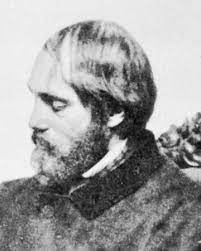Edward Everett Hale fue un niño prodigio que pudo matricularse en Harvard con tan solo 13 años. Creció hasta convertirse en ministro, escritor e historiador.
En 1903, se convirtió en capellán del Senado.
Edward Hale había sido durante mucho tiempo un activista por la emancipación y por la educación de los esclavos liberados. A diferencia de muchos abolicionistas y emancipacionistas, que querían la libertad de los negros pero aún los consideraban inferiores intelectualmente, Edward Hale sostenía que los negros tenían “la misma capacidad de aprendizaje que los blancos”.
Aunque esperaba poder evitar la guerra, una vez que estalló, Hale se volvió ferviente en sus esfuerzos por reclutar jóvenes para la causa.
Cada domingo, desde el púlpito, hacía un llamado al alistamiento, diciendo que “cuando terminara el alistamiento en su iglesia, renunciaría e iría al frente”. También defendió la necesidad de alistar soldados negros.
En un momento dado, alguien le preguntó: “¿Ora por los senadores, Dr. Hale?”
•
Edward Everett Hale fue un niño prodigio que pudo matricularse en Harvard con tan solo 13 años. Creció hasta convertirse en ministro, escritor e historiador.
En 1903, se convirtió en capellán del Senado.
Edward Hale había sido durante mucho tiempo un activista por la emancipación y por la educación de los esclavos liberados. A diferencia de muchos abolicionistas y emancipacionistas, que querían la libertad de los negros pero aún los consideraban inferiores intelectualmente, Edward Hale sostenía que los negros tenían “la misma capacidad de aprendizaje que los blancos”.
Aunque esperaba poder evitar la guerra, una vez que estalló, Hale se volvió ferviente en sus esfuerzos por reclutar jóvenes para la causa.
Cada domingo, desde el púlpito, hacía un llamado al alistamiento, diciendo que “cuando terminara el alistamiento en su iglesia, renunciaría e iría al frente”. También defendió la necesidad de alistar soldados negros.
En un momento dado, alguien le preguntó: “¿Ora por los senadores, Dr. Hale?”
¿Su respuesta?
“No, miro a los senadores y rezo por el país”.
PrisioneroEnArgentina.com
Febrero 9, 2024